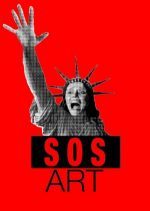“Syro-Malabar Catholicism is part of my identity; it is my culture,” says Sudeep Thomas. “All my life has been connected to it and nothing can take it away from me. It comes with me wherever I go.”
Born in Kerala, India, Thomas grew up within a religious family that had belonged for many many generations to the Syro-Malabar Catholic church. The church, which got its name based on its Catholic faith, its Indian culture, and its Syriac/Oriental liturgy, is thought to have been founded originally by the Apostle Thomas. According to tradition, the Apostle would have sailed, in the year 52 A.D., to the western southern tip of India, to the state of Kerala, to preach the Gospel and baptize its people.
Thomas’ parents were both very religious, his mother participating regularly in the church’s activities, in the church’s mothers organization, helping the poor; and his father, in addition to his leadership role, having established the church-associated St Vincent de Paul branch in Thrissur, where they lived. Thomas accompanied them every Sunday to mass, attending also Sunday school, studying catechism.
He grew up in an area predominantly Hindu and Muslim, with only a small Christian community, and participated in the feasts and festivals of all 3 religions.
At the public school he attended, he was also one of the very few Christian students.
“My friends were from all religions,” he states, “but most of my own activities were connected to the church.”
During rainy season, for instance, Thomas would go and help poor farmers and invite them, on Sundays, to a free lunch at the church, also help them fix and mend their short-lived thatched roof. He would also assist his father collect money for the St Vincent de Paul chapter this latter had started, participating in clothes distribution, also lending a hand with the sick and hospitalized.
Using dowsing for water divination, a skill he had developed and acquired as a child thanks to his father, Thomas, using a pendulum, would help farmers locate ground water in their land, guiding them on where to dig their wells.
“I would do it always free of charge, and not rarely, help them also in the digging,” he says.
In pre-degree college, i.e. in grades 11 and 12, heading a small youth group from his church, Thomas planned and arranged for a movie projection and for a magician performance in order to raise money for a public library to be located in the church. The library was started, open to everyone, irrespective of religion.
For college, Thomas went to the National Institute of Technology, in the state of Bihar, in the north of India. He studied electric and electronic engineering and graduated with a BS degree 5 years later. These years, however, were not very socially productive as he felt isolated and not connected to a community.
“The area was almost entirely Hindu,” he states. “There was no Syro-Malabar church and the closest Catholic church was 15 miles away and of difficult access.”
Thomas, nevertheless, belonged on campus to a small Christian group of prayer and spiritual exchange that met regularly. They were, however, at some point threatened by a fellow Hindu fundamentalist and were forced to relocate. He also joined a yearly Evangelical students fellowship gathering, offering his services, cooking for and helping those in need.
After his graduation and a couple of brief jobs in Kerala, Thomas moved to the state of Andhra,1000 km away from home, where he had secured an engineering job in a steel plant. He stayed there for what he describes as 6 boring years, connected to a very small Syro-Malabar church which would operate infrequently only when a visiting priest would come to celebrate mass. Through the church, however, he continued his charitable actions, providing regularly food to the poor and help to the needy.
“I also commemorated Onam, the harvest festival celebrated once a year by Keralites all over the world,” he says. “It kept me connected to my base.”
At the end of 6 years, Thomas decided to leave and emigrate either to the United States or to Australia. His father not in favor of the US, Thomas obtained a permanent resident visa to Australia and ended up in Sydney. It was 1992.
“At my arrival, I had only 6 dollars in my pocket, and was completely lost,” he says. “I did not know how to apply for a job and where to seek help…”
For 4 months he had no steady income and survived selling water, cleaning carpets, washing dishes… He came across a St Vincent de Paul store which helped him furnishing his shared apartment. He volunteered his services, made deliveries for them and assisted them in their various activities…
“I experienced then real poverty and was very lonely and depressed. I saw clearly the downside of capitalism,” he reminisces.
Two years later, Thomas joined the university and got a post graduate diploma in optical fiber technology. This allowed him to obtain a job with the government teaching computer skills to soon to be freed inmates. It is also when he decided to return to India to get married.
“My wife is also a Syro-Malabar Catholic,” he says. “Right after our wedding, we returned to Sydney, lived there a few more years and had there our 1st two daughters.”
Six years after his arrival to Australia, in 1998, Thomas, his wife and his two children left for Cincinnati.
“I was offered a better move by my company which had its main office in Cincinnati. They needed my expertise in interactive business systems to consult with other US firms.”
When he arrived to Cincinnati there was also no Syro-Malabar Catholic church, but progressively a small community got formed and initially masses were celebrated whenever visiting priests would come along. Now, the community, which consists of approximately 40 families, has a small rented church, the St. Chavara Syro Malabar Catholic Mission at the Our Lady of Rosary Church in Greenhills, and a steady priest who is a current student at Xavier University.
According to their tradition back in Kerala, Thomas and his Syro-Malabar fellows will gather every Christmas and tour homes in their neighborhood singing carols; they would often be paid in return.
“We did not know initially what to do with the money,” says Thomas, “but then we decided to each add to it and to send our collection to India to help a worthy cause.”
Over the years they were able to help a heart patient for his surgery, several families in need, and many organizations, in particular the Deepti Foundationof the Missionary Society of St. Thomas the Apostle (MST) in New Delhi, which takes care of orphaned children whose parents had died of AIDS. They also sent financial help during this last August’s devastating Monsoon floods in Kerala. Thomas and his fellows also do voluntary work at the Michaela Farm run by the Sisters of St. Francisin Batesville, Indiana; they help with farming, cleaning up, and other necessary chores. They also help regularly, with their family, in soup kitchens.
As far as his own activities, Thomas is very involved with One Church of Mercy, a collective of Eastern churches in Cincinnati, which mission is to fight persecution and provide support to persecuted Christians all over the world. He is now trying to coordinate collaborative work between the collective and CNWA, the Catholic Near East Welfare Association, which helps Christians in the Near East.
Thomas has also been sponsoring all along children in third world countries through Unbound, formerly CFCA Catholic relief. He sends money to the organization which forwards it to a given child in need. Thanks to him, for instance, a child in Peru was able to complete his education and become a Veterinarian.
“When I do charitable work, I try to not let my left hand know what my right hand is doing,” says Thomas. “For me the essential is to contribute and help even if I do not see the effect right away. It is like planting a tree; the planter rarely gets to enjoy its fruits but generations to come will,” he adds.
When asked about his future involvements, Thomas answers that they will be directed toward relieving the plight of refugees.
“Refugees are the most ignored and most suppressed individuals,” he says. “We need to help them in any way we can and find a permanent solution to their case.”
Actually Thomas had already welcomed them and facilitated their insertion in society when he was part of the social justice group at All Saints church that he had attended for a while
Thomas will continue doing whatever he can to make this world a better place. His Syro-Malabar Catholic faith and heritage will always and naturally dictate his actions.
“My motto is that life is not fair and that it is everyone’s responsibility to make it fair,” he states. “By doing so we will be helping someone along the way, especially the weak and the vulnerable.”
What is the Syro-Malabar Catholic Church The Syro-Malabar Catholic Churchis one of the 22 Eastern (Oriental) Catholic Churches. It is in full communion with the Pope and the worldwide Catholic Church andisgoverned by a Synod of Bishops headed by a Major Archbishop, with self-governance under the Code of Canons of the Eastern Churches. It is based in Kerala, India. The Church uses the Divine Liturgy of the East Syriac Rite, dating back to 3rd century Edessa, and as such is a part of Syriac Christianity both by liturgy and heritage. The Church is said to be "Catholic by faith, Indian by culture, and East Syriac/Oriental in liturgy." The name Syro-Malabar is coined from the words Syriac (referring to the East Syriac liturgy) and Malabar (the historical name for Kerala). The name has been in usage in official Vatican documents since the nineteenth century. It is the third-largest particular church in the Catholic Church (after the Latin or Roman Church and the Ukrainian Catholic Church). The Syro-Malabar Church has around 5 million believers and traces its origins to the evangelistic activity of Thomas the Apostle in the 1st century. Its members are mostly of the Malayali ethnic group and their vernacular language is Malayalam.Due to emigration of its members, various eparchies (i.e. dioceses) have opened up in other parts of India along with various parts in the rest of the world due to a worldwide Syro-Malabar Malayali diaspora living in North America, Australia, and the United Kingdom. The members of the Church are colloquially known in Kerala as Roman Catholic Syrian Christian (RCSC). Saint Alphonsa is the Church's first canonized saint, followed by Saint Kuriakose Chavara and Saint Euphrasia. It is one of two Eastern Catholic churches in India, the other one being the Syro-Malankara Catholic Church which uses the West Syriac Rite liturgy. In the greater Cincinnati area, there are approximately 40 families belonging to the Syro-Malabar Catholic Church.




Leave a comment